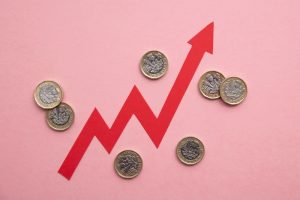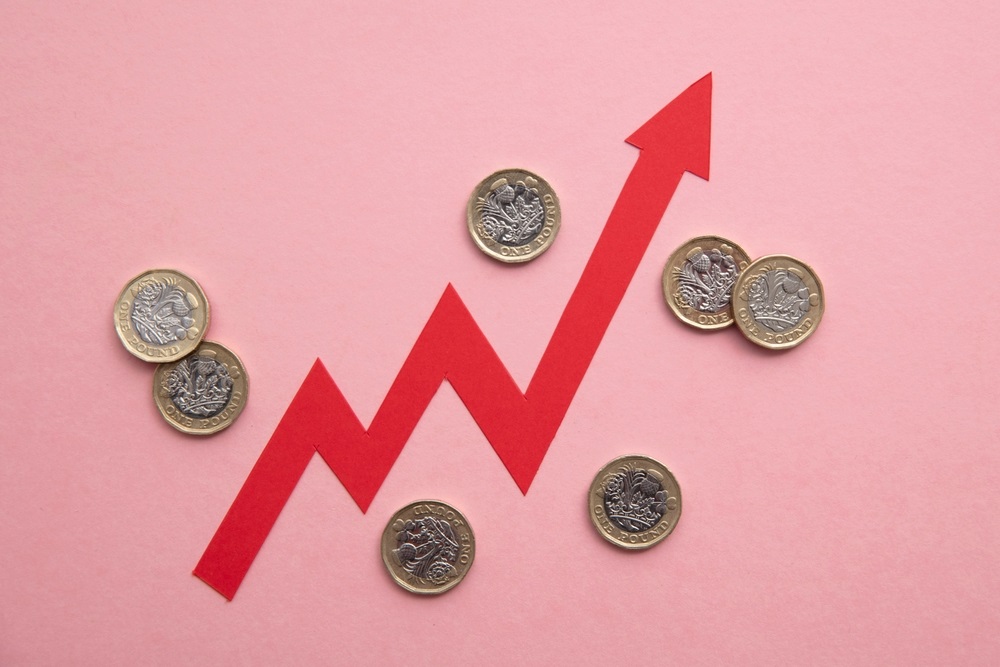 Laith Khalaf, head of investment analysis at AJ Bell, said the fact inflation remained in double digits had taken the markets by surprise and this had led to a change in the interest rate predictions for 2023.
Laith Khalaf, head of investment analysis at AJ Bell, said the fact inflation remained in double digits had taken the markets by surprise and this had led to a change in the interest rate predictions for 2023.
The latest Consumer Prices Index (CPI) revealed inflation had failed to fall, as expected, into single figures and in March increased by 10.1%.
The Bank of England has been increasing interest rates in a bid to slow inflation and, so far, it has hiked the rate 11 times, consecutively, since December 2021.
As such, said Khalaf, the news inflation remained above 10% had confounded markets and led to interest rate expectations spiking.
“The market is now anticipating three interest rate rises this year,” he added, “which would take the Bank of England’s base rate to 5%.
“Before the release of the latest inflation data, the expectation was we would only see one more interest rate hike, possibly two. So there has been a considerable shift in sentiment.”
Khalaf explained how higher interest rates potentially affected quite a wide range of personal finance matters – but the biggest impact was on the mortgage market.
“[This] will concern the millions of people rolling off cheap fixed rate deals this year,” he said, “who will face a much more punishing rate of interest when they come to remortgage.
“Interest rates themselves don’t have to rise – simply the expectations of higher rates can push fixed rate deals up – and we may start to see a bit of upward pressure in the mortgage market as a result of this latest inflation data.”
Mortgage rates: Well priced products are hitting the market
Although this is worrying for anyone about to take out a mortgage or who is due to remortgage, the situation may not be quite as stark as it may seem.
At the last meeting of the Bank of England’s monetary policy committee interest rates were raised to 4.25% which is the highest level since 2008.
But fixed-rate mortgages are not following this same pattern.
Alice Haine, personal finance analyst at Bestinvest, explained: “Although interest rates are at their highest level since the financial crisis, mortgage rates have been on the slide in recent months as many lenders believe interest rates have either already peaked or will do so soon – resulting in more attractively priced products hitting the mortgage market.
“With fixed-rate deals significantly more competitive than they were at the end of last year, and more products to choose between, borrowers must now decide whether taking a two-year or five-year deal will be more cost-effective or whether to take the risk of a variable deal if rates start to edge down again.”
If you are keen to understand more about your mortgage options, particularly when interest rates are high, the latest What Mortgage podcast may help you. We spoke to Gemma Bennett, senior mortgage broker at The Mortgage Mum, who also explains more about why fixed rate mortgages have got cheaper.
Follow the link to podcast here.
Meanwhile, the advice to anyone looking for support on finding the best rate is to speak to a broker.
Haine added: “The International Monetary Fund expects the increases in borrowing costs to be temporary once inflation is brought under control, but with such a difficult decision to make, first-time buyers or those looking to refinance should consult a reputable mortgage broker to help them find the right deal for their situation.
“Just don’t overstretch yourself as living costs are still high and with property prices on the slide, the last thing a buyer wants is to fall into negative equity.”




